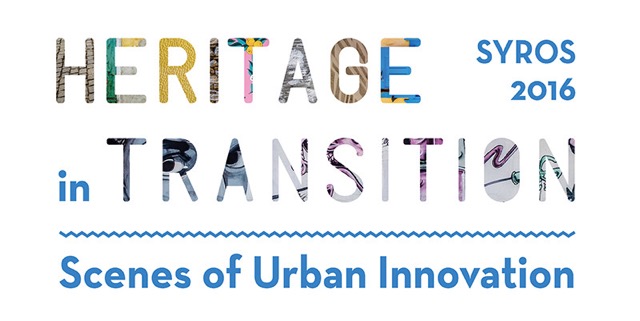IASCC Conference 2016 - Heritage in Transition: Scenes of Urban Innovation

This Conference is hosted by The Culture of Cities Centre and will convene on July 27-29th, 2016 at The Cultural Center in Ermoupolis, on the island of Syros in Greece. It is held in collaboration with York University, St. Jerome's University and the University of Waterloo. The aim of this meeting is to focus upon how cities create cultural landscapes in which heritage is both tangibly marked by the built environment, by official scripts and policies and also by their seemingly intangible influences of collective memories and collisions in values about the meaning of place that fluctuate over time.
How can the rich and varied approaches of cultural analysis, social theory, and the humanities, arts and social sciences contribute to an interdisciplinary examination of the ground of heritage in the relationship of the city to time and to the complexity presupposed by such a history of official and unofficial legacies?
Topics to be addressed include:
- How cities can and do use their past heritage in the present as part of their cultural capital.
- The connection of innovative methodologies and emergent practices for engaging the relation of urban pasts to present and future.
- Latest advances in the development of technological applications for representing the past in images of the built environment, narratives and the visual representation of local topographies.
- Representations of cultural capital that includes official traditional heritage designations, historical neighbourhoods and landmarks, the preservation of art or masterpieces, the contents of museums and deposits of artefacts and the practice of art and artists and the evolving ‘art worlds' that become part of the aura of the city as its affective infrastructure.
- Relations to traditions of any and all kind (from linguistic to aesthetic), including modification, rejection, preservation as in fundamentalist and enlightenment gestures and actions.
- Narratives about the urban past produced in any present by descendants, survivors, witnesses, informants.
- Redefinitions of work through archival material.
- Issues of conservation and preservation.
- Ways different societies mark their inheritances whether through mechanistic repetition, vandalism, obfuscation, and innovative reinvention.
- Use of heritage criteria for conferring identity of persons and groups through rituals for designating membership such as purity or impurity of blood line, affiliation, citizenship, classification, genre.
- Policy discussion relating to cultural identity and memory, cultural regeneration and collective biographies.
- Dissonant registers and controversies of historical past(s).

|

